Posted on 5/28/2024
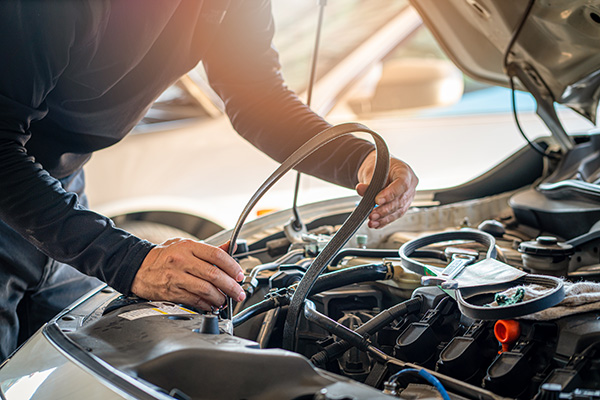
Your vehicle's serpentine belt may seem small, but its role is crucial in keeping your car running. When this seemingly insignificant part develops cracks, it can lead to a cascade of problems that affect your vehicle's performance and safety. But why is a cracked serpentine belt more than just a minor inconvenience, and why is addressing it promptly important for your vehicle's well-being? The Function of a Serpentine Belt The serpentine belt, also known as a drive belt, transfers power from the engine to various vehicle components, such as the alternator, air conditioning compressor, power steering pump, and water pump. Essentially, it keeps essential systems running smoothly, ensuring optimal performance and functionality while you're on the road. The Perils of Cracks When a serpentine belt develops cracks, it compromises its ability to ... read more
Posted on 4/26/2024
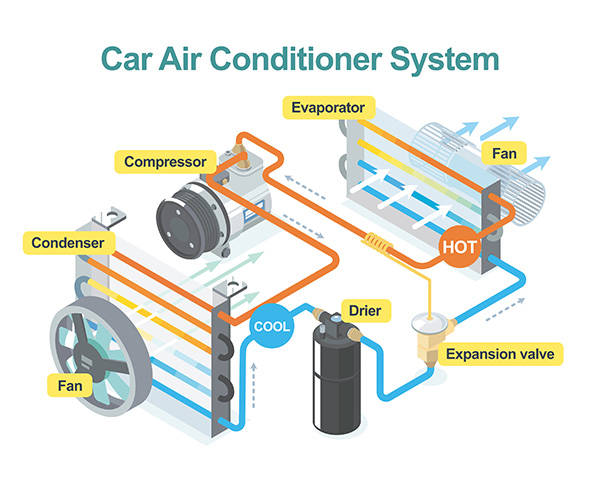
Spring is already here, and summer is coming. Your car's air conditioning system is important, promising relief from the heat. But have you ever paused to ponder the inner workings of this cool companion? What Are The Main Components1. The Compressor's Role: At the core of the AC system lies the compressor, a small yet powerful component that kickstarts the cooling process. It transforms low-pressure, gaseous refrigerant into a high-pressure, high-temperature gas, laying the groundwork for cool comfort. 2. The Condenser: The condenser is positioned in front of the car's radiator. It serves to cool down the high-pressure gas from the compressor. As air passes through its fins, it absorbs heat from the refrigerant, turning it into a high-pressure liquid ready for the next phase. 3. The Evaporator: Delve into the inner sanctum of your car's cabin to discover the evaporator, the true magician beh ... read more
Posted on 3/28/2024
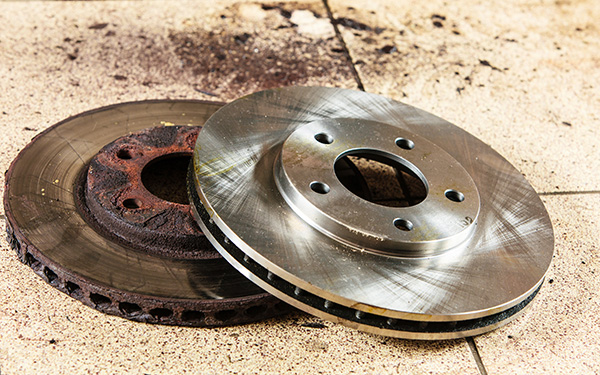
Brake rotors play a crucial role in your vehicle's braking system, providing the surface against which the brake pads clamp to slow or stop the wheels. Over time, due to regular wear and tear, brake rotors can deteriorate, affecting braking performance and safety. Recognizing the signs indicating that your brake rotors need replacement is essential for maintaining optimal braking efficiency and ensuring your safety on the road. Vibration or Pulsation While Braking One of the most common signs of worn brake rotors is a noticeable vibration or pulsation felt through the brake pedal or steering wheel when applying the brakes. This vibration occurs due to uneven wear on the brake rotor's surface, causing the brake pads to make inconsistent contact during braking. Scoring or Grooves On The Rotor Surface Inspecting your brake rotors visually can provide valuable insights into their condition. If you notice deep scoring, grooves, or uneven wear pa ... read more
Posted on 2/26/2024
%20(Small).jpeg)
Environmental consciousness is more necessary than ever. As vehicles are a big source of pollution, finding ways to minimize their environmental impact is essential. You can adopt a couple of strategies, that we will share, to make your car more eco-friendly, reducing its carbon footprint and potentially saving you money in the process. Maintenance Checks Keeping your car in optimal condition is the first step toward eco-friendly driving. Regular maintenance checks ensure that your vehicle operates efficiently, reducing unnecessary emissions. This includes: Routine oil changes Air filter replacements Brake system ... read more
Posted on 1/24/2024
.jpeg)
All kinds of components and systems work together in order to make your vehicle as efficient and robust as it is. But have you ever wondered about the fluids that keep your vehicle running smoothly? If so, join us to unravel the mysteries of your car's vital fluids and guide you on when it's time to give them a refreshing change. 1. Engine Oil No vehicle fluid guide goes without the mention of engine oil - and that is for a reason. It lubricates the various moving parts, preventing friction and heat buildup. Over time, however, this liquid gold can become contaminated with debris and lose its viscosity. Regular oil changes, typically every 3,000 to 5,000 miles, are crucial to ensure your engine stays healthy and performs at its best. 2. Transmission Fluid ... read more
Posted on 12/30/2023
%20(Small).jpeg)
Gliding down the road, you feel at one with your car. In these moments, it's easy to forget about the complex balance of parts working tirelessly beneath your feet – particularly one unsung hero: the clutch. While easily overlooked, this component is vital for a smooth and responsive driving experience. Let's journey into the world of manual transmissions and unravel the mystery behind what exactly a clutch does. The Magic Behind Gear Shifting At its core, a clutch is a fundamental part of any vehicle with a manual transmission, and automatics, but things there are a little more different. Its primary purpose is to connect and disconnect power from the engine to the transmission system. But how does this seemingly simple action influence your driving? Ima ... read more
Posted on 11/29/2023
.jpeg)
Your vehicle's dashboard is a complex combination of all kinds of information, but among all, the check engine light can be a cause for concern. Don't be intimidated! We'll unravel the five most common reasons why the check engine light comes on and show you how to take proactive steps to avoid these issues. The Unassuming Fuel Cap It is a seemingly trivial oversight, yet one that holds surprising sway over the check engine light – the fuel cap. A loose or damaged fuel cap can trigger the light to illuminate, signaling potential issues with the evaporative emissions system. The remedy? Ensure your fuel cap is securely tightened after each refueling. This simple act can circumvent unnecessary visits to the mechanic and keep the check engine light at bay. Sensor Signals In modern vehicles, a network of sensors contr ... read more
Posted on 10/28/2023
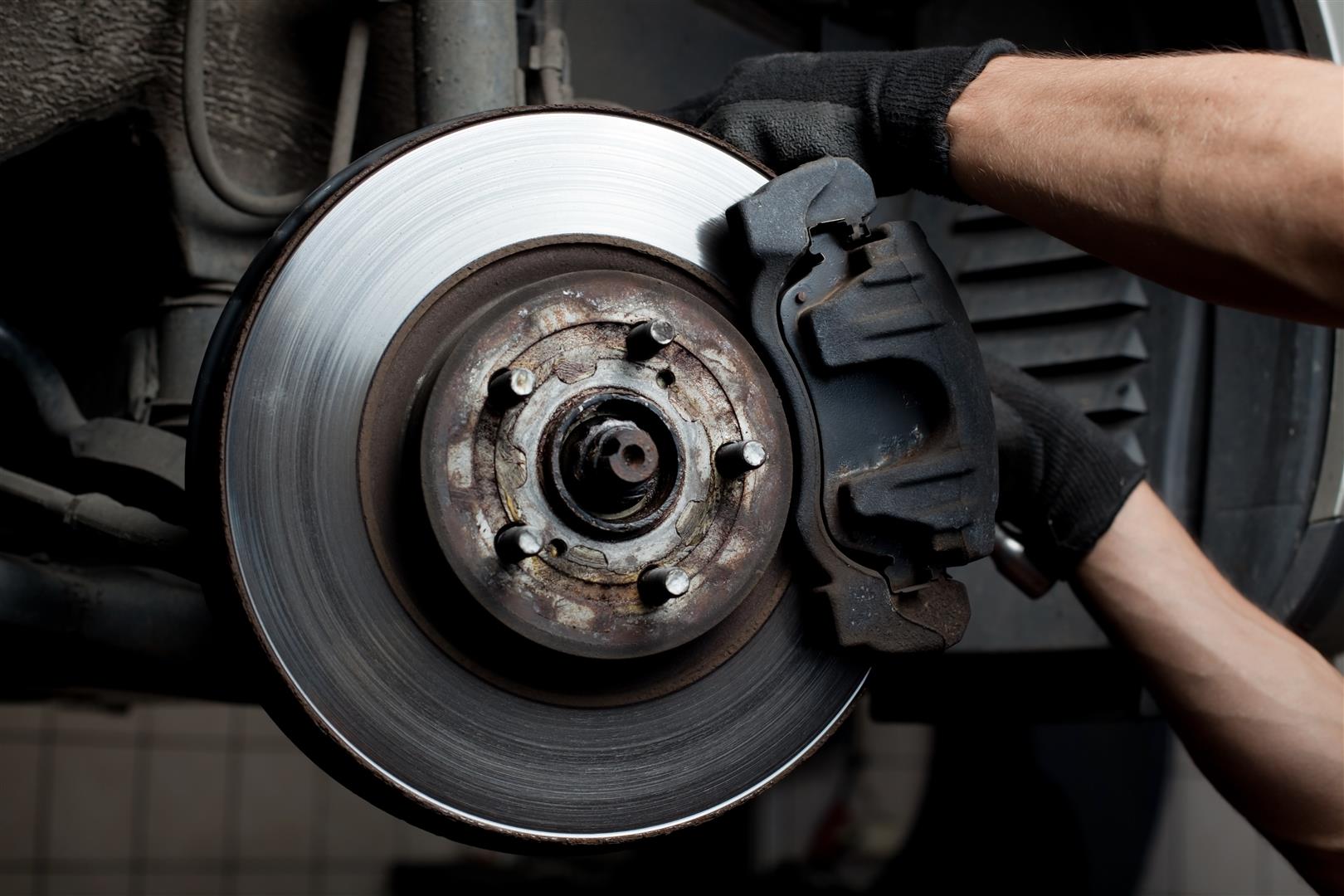
Its seamless functionality often goes unnoticed until the need arises, making it imperative to maintain this critical safety feature in prime condition - we are talking about the ABS system. The intricate and swift work of this system calls for proper maintenance; furthermore, it being connected to the brake system calls for even more attention. Let's take a look at what you should do to keep it operating smoothly. Basics Of The ABS System The Anti-lock Braking System (ABS) is a crucial safety feature in modern vehicles designed to prevent the wheels from locking up during sudden or emergency braking. Its primary function is to maintain traction and steering control, especially on slippery or uneven road surfaces. By rapidly modulating the brake pressure on each wheel, the ABS allows the driver to retain steering control while reducing the risk of skidding or loss of control. This technology helps to improve vehicle stability and shorten braking distances, signif ... read more
Posted on 9/30/2023
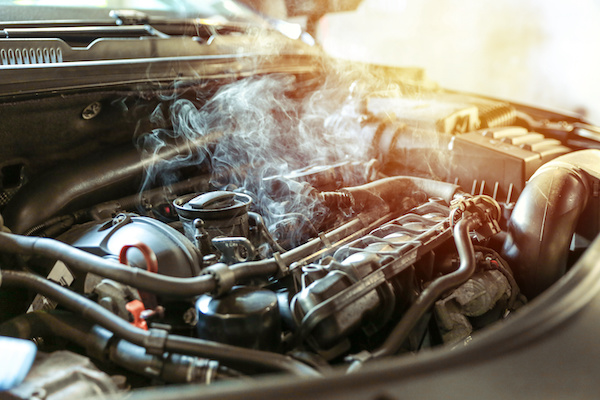
Seeing smoke billowing from under your car's hood can be a distressing sight for any driver. It's a clear sign that something isn't right under there. We're here to help you decipher the potential causes of smoke under your car's hood and give you the knowledge to address the issue promptly and ensure a safer and smoother driving experience. Overheating Engine One of the most common reasons for smoke under the hood is an overheating engine. When the engine temperature rises excessively, it can cause various components, such as hoses, gaskets, or coolant reservoirs, to leak or even burst. This can result in steam and smoke escaping from the affected area. Oil Leaks Oil leaks are another frequent culprit. When oil comes into contact with hot engine parts, it can generate smoke. Leaking oil can be caused by damaged gaskets, seals, or oil pans. It's essential to address oil ... read more
Posted on 8/31/2023

When it comes to the design of a vehicle's drivetrain, two dominant configurations stand out: rear-wheel drive (RWD) and front-wheel drive (FWD). These setups determine how power is transferred to the wheels and significantly impact a car's handling, performance, and overall dynamics. Today, we will be taking a closer look at both and their main benefits, so you are more informed on the topic if you have any prior questions. Rear-Wheel Drive (RWD) Rear-wheel drive is a classic configuration where the engine's power is delivered to the rear wheels. This layout offers distinct advantages that have made it a favorite among driving enthusiasts and performance-oriented vehicles. One of the most popular examples of RWD cars is BMW. They have quite the reputation for being good drift and performance vehicles, solely because of their drivetrain configuration. Better Weight Distribution With the engine and transmission at the front and power sen ... read more